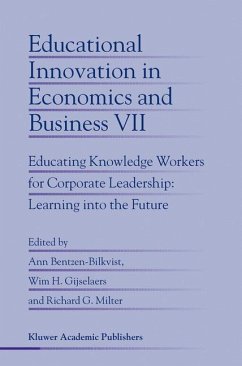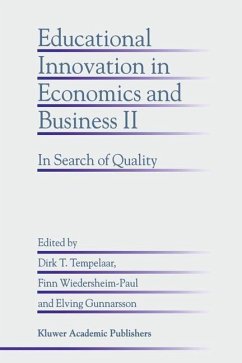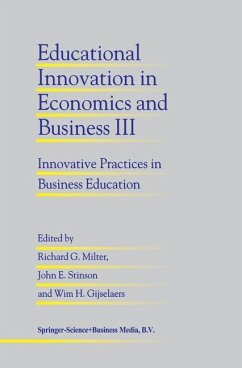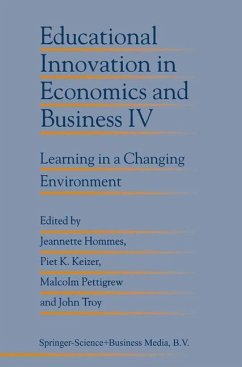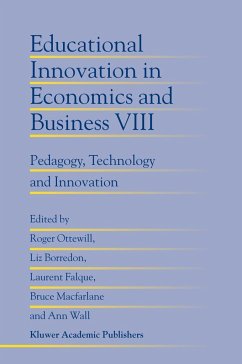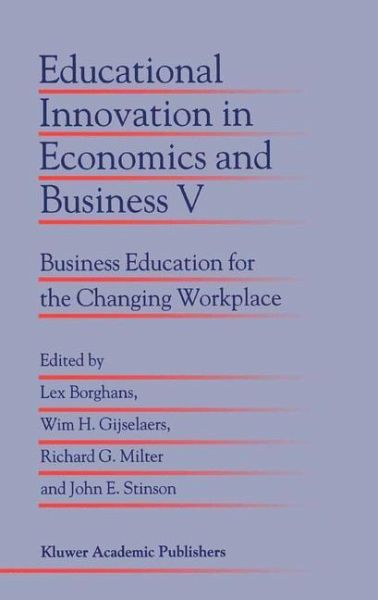
Educational Innovation in Economics and Business V
Business Education for the Changing Workplace
Herausgegeben: Borghans, Lex; Gijselaers, Wim H.; Milter, Richard G.; Stinson, John E.
Versandkostenfrei!
Versandfertig in 1-2 Wochen
115,99 €
inkl. MwSt.

PAYBACK Punkte
58 °P sammeln!
The workplace is changing drastically these days. As a consequence of the Information and Communication Technology (ICT) revolution, new economic activities emerge, the production process changes, people use different communication tools, and organizational structures are adjusted. All these changes relate to the heart of business and economics, and there is no doubt that they will also influence education in these areas. Of course ICT provides new technologies to facilitate learning, but a changing workplace also requires a renewed focus within the curriculum of economics and business educati...
The workplace is changing drastically these days. As a consequence of the Information and Communication Technology (ICT) revolution, new economic activities emerge, the production process changes, people use different communication tools, and organizational structures are adjusted. All these changes relate to the heart of business and economics, and there is no doubt that they will also influence education in these areas. Of course ICT provides new technologies to facilitate learning, but a changing workplace also requires a renewed focus within the curriculum of economics and business education. If ICT is leading to profound change in the workplace, is innovation then only a matter of introducing more technology in education? Unfortunately, this is not necessarily true. The translation of changes in the workplace into an improved curriculum requires serious analysis of the essence of the changes at the work place, and the way technology may enable student learning. For example, relevant knowledge is changing faster and faster. Does this mean that we have to adopt the curriculum faster and faster? Perhaps not, as students will have a labor market career of 30 or 40 years. Focusing on today's knowledge - even if it is very up-to-date - loses more and more value if the life cycle of knowledge becomes shorter. Increased speed of change also implies a decrease in the value of knowing all these things.



